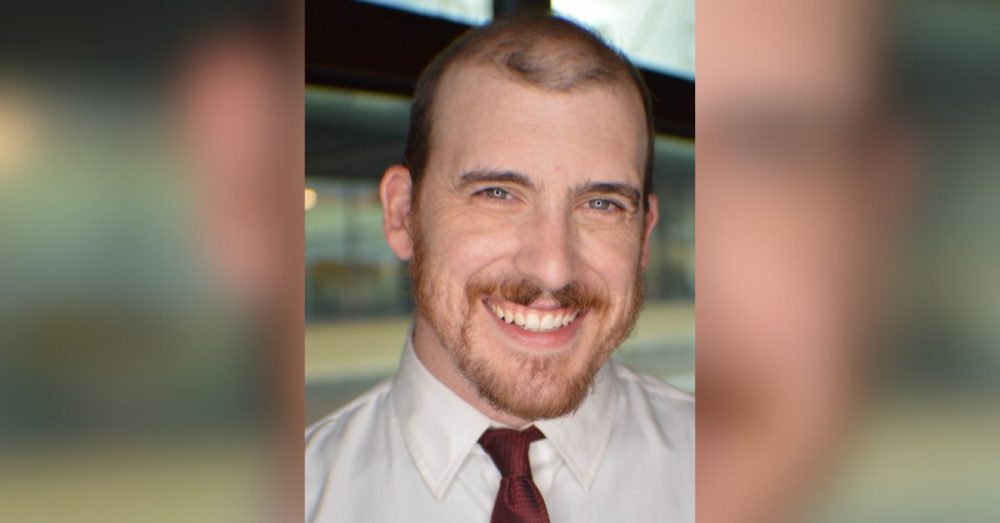Ian Camacho will do anything to secure Texas and other states’ elections, and he often gets results.
The 41-year-old eschews much of the glitz and glam of high-profile election integrity efforts despite the fact that they can serve as a lucrative career move. He pointed to 2,000 Mules as an example of grifting, something he sees as all too common in the movement.
Although the documentary film was widely watched, including at the 2022 Texas Republican Convention, the film’s distributors later apologized to the parties the film allegedly defamed and eventually ceased distribution of the picture.
In a lawsuit over the film’s allegations of fraud, which were made by True the Vote, a nonprofit that purported to expose fraud in the 2020 election and supported the production of 2,000 Mules, the organization “admitted they had nothing,” Camacho said.
“It’s a shame because those guys took so much money. … [They took one donor’s] like $2.5 million in 2020. And they’ve taken so many of the people’s money,” he added.
Camacho’s work is usually done alone. He pushes dozens of bureaucrats through the byzantine process of identifying and pursuing election fraud cases. This is a massive undertaking that is done at his own expense. Paying to get countless documents notarized adds up, and he has a wife and home to support.
He is a contract writer for Texas Scorecard and frequently writes about election integrity. He also does research for universities and even works with concrete when necessary.
“I love writing but pay isn’t consistent (yet). Job market sucks. Notarizing & mailing complaints isn’t free. My wife’s birthday was yesterday. Needed $ fast. Poured concrete Monday 4:30A-9:30P. My respect for laborers grew. Then a p/t job offer called me EOD! Never give up,” he posted on X.
I love writing but pay isn't consistent (yet). Job market sucks. Notarizing & mailing complaints isn't free.
My wife's birthday was yesterday.
Needed $ fast.Poured concrete Monday 4:30A-9:30P.
My respect for laborers grew.
Then a p/t job offer called me EOD!
Never give up! pic.twitter.com/sBmTd3wn8A— Ian Camacho (@RealIanCamacho) August 14, 2024
One success Camacho had was in 2023 when he found a well-known election integrity activist voting in three states: New York, Florida, and Tennessee. By comparing the states’ voter records, he found what local government officials in Tennessee had missed.
Subsequently, the fraudster was convicted, and Camacho received a small reward for his efforts.
Another success appears to be in the making in Gwinnett County, Georgia. Although there have not been any criminal prosecutions yet stemming from his efforts, Camacho identified 22 voters illegally registered at post office boxes in the 2020 general election. Investigators concurred, writing that there were “violations found” and referring the case to the state election board for review and possible forwarding to the state’s attorney general.
Gesturing toward the widespread nature of issues like these, he wrote at the time, “This was just one county.”
The sentiment echoed one he previously shared with DX about election fraud in swing states.
“Voter fraud isn’t rare. It’s just rarely prosecuted,” he said.
Not every effort is successful, however. In January 2024, Camacho identified what appeared to be a voter crossing the border of Texas and New Mexico to vote in both states’ elections. The case ran cold, however, in part because of New Mexico’s lack of election documentation due to its nonexistent voter ID laws and a purported lack of prosecutorial interest in Limestone County.
One of Camacho’s biggest cases is still in the works, and there is a new update practically every day. The case began when Camacho shared documents with The Dallas Express that indicated there may have been persistent election integrity issues with Loving County’s county judge signing off on official documents while he was suspended over cattle rustling charges.
Through exchanges that Camacho and DX had with the State Commission on Judicial Conduct that oversees such matters, it became apparent that the agency may have lost Camacho’s complaint, DX reported.
Initially, an administrative assistant said the agency had never received the complaint despite someone having signed for it at the agency’s post office box. Then, a variety of errors appeared to indicate widespread chaos in the agency’s tracking system.
While the outcome of the case has not been determined, Camacho’s work has identified apparent dysfunction in Texas’ oversight agency and the ineffective systems established in the Lone Star State to prevent voter fraud.
Camacho has political inclinations, but he says they do not interfere with his election integrity efforts.
“I lean conservative. I just like normalcy … but I guess in a lot of ways, I’m pretty centrist,” he said.
He also said he will go after fraud wherever he finds it, whether it involves a Republican or a Democrat. This nonpartisan commitment has brought him to some surprising findings. He said that many of the convictions he sees for low-level election fraud are of Republicans, although convictions are not necessarily perfect indicators of how frequently something is occurring.
However, in contrast, he noted that when he finds election fraud involving elected officials, those are almost always Democrats.
As a former elections judge and a director of research at Look Ahead America, Camacho gives near-weekly accounts of his ongoing efforts on his Substack. Camacho’s full exchange with The Dallas Express can be heard on the Cowtown Caller podcast.


